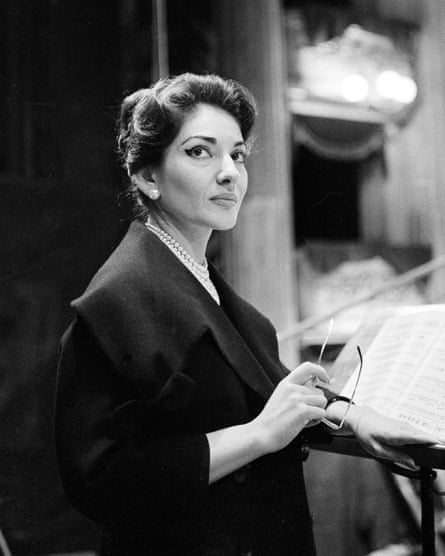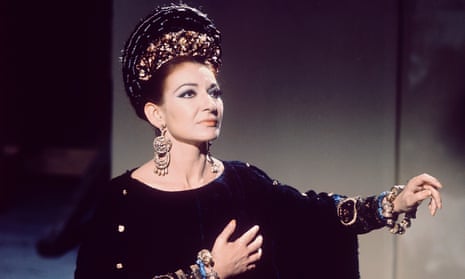Although she was born a hundred years ago, Maria Callas remains the best-selling classical singer of all time. But when I tell people I have written a novel about her, the reaction comes with a sigh: “Oh Maria, such a talent, but what a tragedy.” All because Callas was left by a man. In 1968, the singer’s lover of nine years, the “Golden Greek” shipowner Aristotle Onassis, ended his relationship with her in order to marry the former first lady Jacqueline Kennedy. The story of Callas, much like the storylines of the romantic operas in which she starred, goes that she was betrayed by the man she loved before going into a decline that ended in her death eight years later.
Callas is not alone in being mythologised as the great female singer who dies unhappy and alone: Judy Garland, Edith Piaf, Billie Holiday, Janis Joplin, Amy Winehouse, the list goes on. There appears to be something irresistible about the idea that a woman of huge talent should be crucified by her success, that she has no right to expect to lead a happy and fulfilled life. With Callas, as with Garland, the emphasis is always on the way down, never the glorious prime. Renée Zellweger won an Oscar for her portrayal of Garland at the very end of her career, while Angelina Jolie is set to star as Callas in the forthcoming film Maria, set during the singer’s final days in 1970s Paris, where she died of a heart attack.

But to frame Callas’s life as tragic is to do this remarkable woman a great disservice. Callas viewed every performance as a battle that she had to win. One of the reasons I found her so inspiring to write about was her unwavering belief in her own talent. At the age of 23 when she was an unknown soprano who had only sung in Athens, she landed an audition at the Metropolitan Opera in New York. The Met was sufficiently impressed by the young singer to offer her a contract singing supporting roles, but Callas knew that she deserved to be singing leading parts and turned them down, telling them that one day they would be begging her to return. She went to Italy instead, where her spectacular career really began. And of course she was proven right, when, 10 years after the audition, director of the Met Rudolf Bing had to pay her an unprecedented fee to perform for a season. Callas knew her own value: demanding equal pay not only with the male singers, but also with the conductor Von Karajan, shocking the music world. But really, who was the audience paying to see? As she said at the time: “I am really not interested in money but it must be more than anyone else gets.”
This was the sort of remark that cemented her reputation as a “diva”. Callas was famous for rehearsing longer and more intensely than anyone else, much to the annoyance of her other singers, who resented the demands she put upon them. “I am only as difficult as I need to be to achieve perfection,” was her response. It is hard to imagine a male artist of her calibre having to justify his quest for the best.
The worst thing to happen to Callas was not the end of her relationship with Onassis, but the loss of her voice. It was inevitable, of course: opera singers are, in a way, musical athletes, and can only go on for so long before their bodies betray them. But Callas began to notice the changes in her voice as early as her mid-30s, when she could have expected at least another decade of performance. The premature loss of her voice has been attributed by some critics to the weight she lost in 1954 when she was preparing for her career-defining performance as Violetta in La Traviata, directed by Luchino Visconti. But this weight loss was not the result of self-destructive urges – Callas lost it because she wanted to be convincing on stage as a woman dying of consumption. And given how careful she was to protect her voice from smoke, air conditioning or any other stressors, it is unthinkable that she would have done so if she thought it would harm her greatest gift.
I think this myth persists because of our desire to believe that great female artists are self-destructive. I do not think this was not the case with Callas. Today, opera singers are very careful to protect their voices by limiting their performances in the early years – but because Callas was so talented she could and did sing everything. In her early 20s she sang Wagner and Bellini in the same week in Venice, which is the musical equivalent of running a marathon and the 100-metre hurdles. No wonder her voice wore out before its time.
But even without the fact of her losing her voice prematurely, the idea that Callas, a woman who had gone into battle her whole life, simply collapsed when she was betrayed by the man she loved is absurd. In the years after the breakup she starred in a film directed by Pasolini; did a hugely successful global concert tour; gave masterclasses at New York’s premier performing arts conservatory the Juilliard School, and had an affair with the tenor Giuseppe di Stefano. I disagree that Callas gave up her career for Onassis: I think it was only because her voice was beginning to falter that she allowed herself to fall in love with him. If she had been given the choice between another decade at the top of her game and Onassis, there is no doubt in my mind that she would have chosen to sing.
after newsletter promotion
Yet even though her career was shortened, she achieved an astonishing amount. After her, the music world moved on from the “park and bark” style of opera, where singers would perform standing still. She was an opera singer who became globally famous for her voice and for the strength of her acting. Her style made her a fashion icon that still inspires today – Erdem Moralıoğlu’s latest show was a tribute to Callas. But above all she was a woman whose genius flourished unchecked. There aren’t enough of them in history, so let’s not demean her achievement by labelling her as tragic.

Comments (…)
Sign in or create your Guardian account to join the discussion